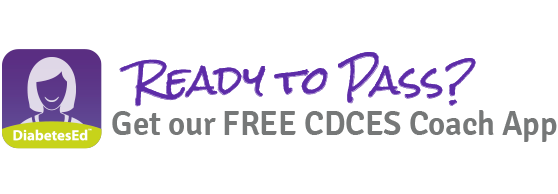
What We Say Matters: Language that Respects the Individual and Imparts Hope | 0.75 CEs
Title: What We Say Matters: Language that Respects the Individual and Imparts Hope
"I had my entire staff participate in the webinar and we all gained a lot from it. Thank you!" - Dawn F.
Diabetes Education Services Online University Courses are an excellent way to study for your exam anytime and anywhere that is convenient for you. You will have immediate access to your courses for 1 year after your purchase date. Each online course includes a: video presentation, podcast, practice test, and additional resources.
What we say matters
As educators, advocates, spouses, friends, and providers, our use of language can deeply affect the self-view of people living with diabetes every day.
Intentional communication is a powerful tool that can uncover trauma, identify barriers, and move both the provider and person with diabetes toward a greater understanding of the issues involved.
The language used in the health care setting is immensely important in determining trust, mutual respect, and meaningful long-term relationships.
Many people with diabetes have experienced injustice, trauma, and marginalization, and are often struggling with feelings of shame and blame.
Objectives:
- Learn phrases, words, and approaches that can be left behind.
- Describe diabetes language that is respectful, inclusive, person-centered, and imparts hope.
- Discuss how to evaluate for ACE and provide trauma-informed care
- Practice communicating about diabetes using phrases free from judgment with a focus on a strength-based approach.
Learning Objectives:
Participants will identify how to incorporate person-centered lanuage as part of thier indivdidualized approach when working with people with diabetes.
Target Audience:
This course is a knowledge-based activity designed for individuals or groups of diabetes professionals, including RNs, RDs/RDNs, Pharmacists, Nurse Practitioners, Clinical Nurse Specialists, Physician Assistants, and other healthcare providers interested in staying up to date on current practices of care for people with prediabetes, diabetes, and other related conditions. The practice areas for RDs/RDNs for CDR reporting are healthcare, preventative care, wellness, and, lifestyle along with, education and research.
CDR Performance Indicators:
- 9.2.1
- 9.2.2
Instructor: Beverly Thomassian RN, MPH, CDCES, has been Board Certified in Advanced Diabetes Management for over 15 years. She is an Associate Clinical Professor at UCSF, a working educator, and a nationally recognized diabetes expert.
Earn 0.75 CEs
Course Level: 4 (included in Level 4 | Advanced & Specialty Topics)
Accreditation: Diabetes Education Services is an approved provider by the California Board of Registered Nursing, Provider 12640, and our What We Say Matters: Language that Respects the Individual and Imparts Hope awards 0.75 CPEUs in accordance with the Commission on Dietetic Registration’s CPEU Prior Approval Program.
The use of DES products does not guarantee the successful passage of the certification exam. CBDCE and ADCES do not endorse any preparatory or review materials for the CDCES or BC-ADM exams, except for those published by CBDCE & ADCES.





